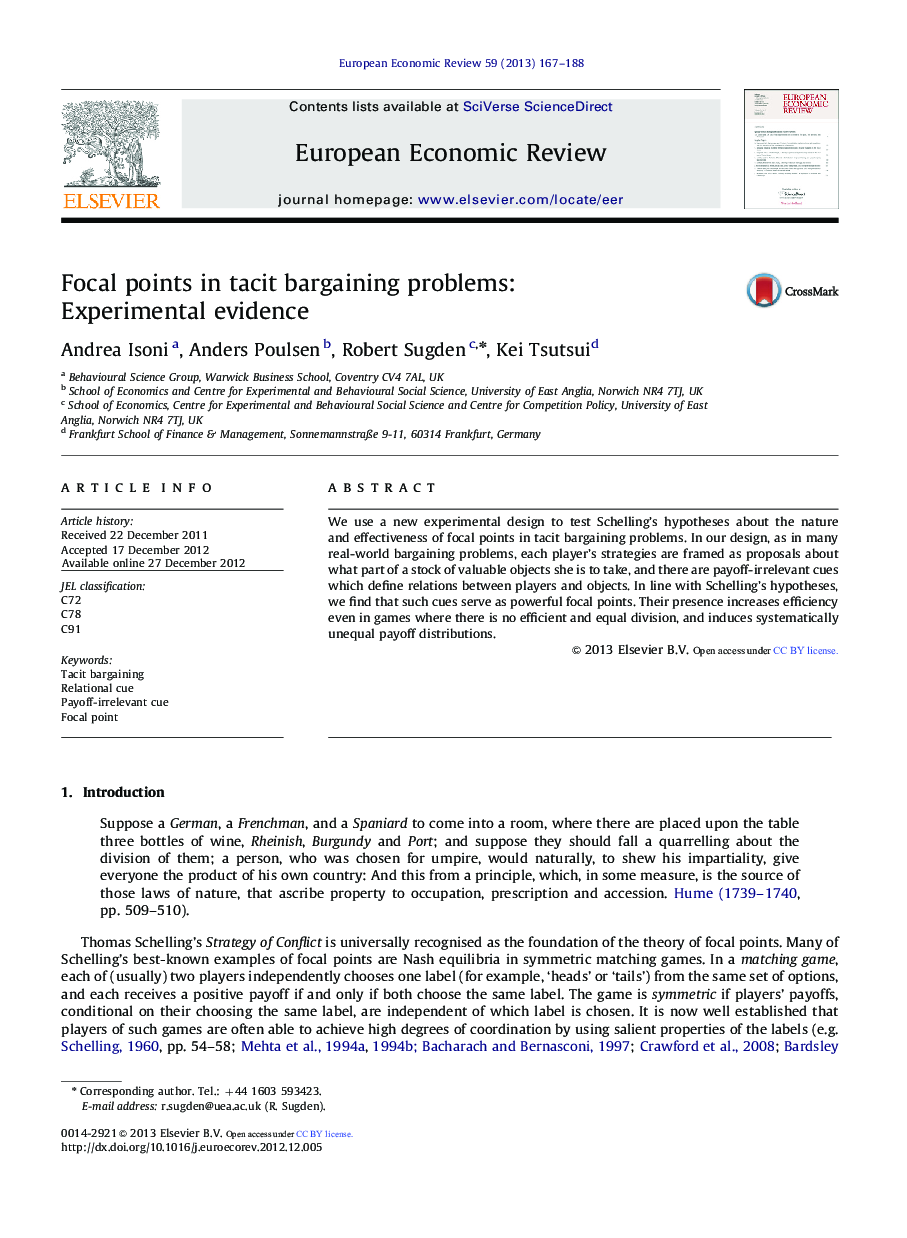| Article ID | Journal | Published Year | Pages | File Type |
|---|---|---|---|---|
| 5067014 | European Economic Review | 2013 | 22 Pages |
We use a new experimental design to test Schelling's hypotheses about the nature and effectiveness of focal points in tacit bargaining problems. In our design, as in many real-world bargaining problems, each player's strategies are framed as proposals about what part of a stock of valuable objects she is to take, and there are payoff-irrelevant cues which define relations between players and objects. In line with Schelling's hypotheses, we find that such cues serve as powerful focal points. Their presence increases efficiency even in games where there is no efficient and equal division, and induces systematically unequal payoff distributions.
⺠The role of focal points in tacit bargaining games is investigated experimentally. ⺠Our design frames players' strategies as claims on a stock of valuable objects. ⺠Salient relations between players and objects are created by payoff-irrelevant cues. ⺠As Schelling proposed, these cues induce systematically unequal payoff distributions. ⺠Cues increase efficiency even when equal and efficient divisions are infeasible.
